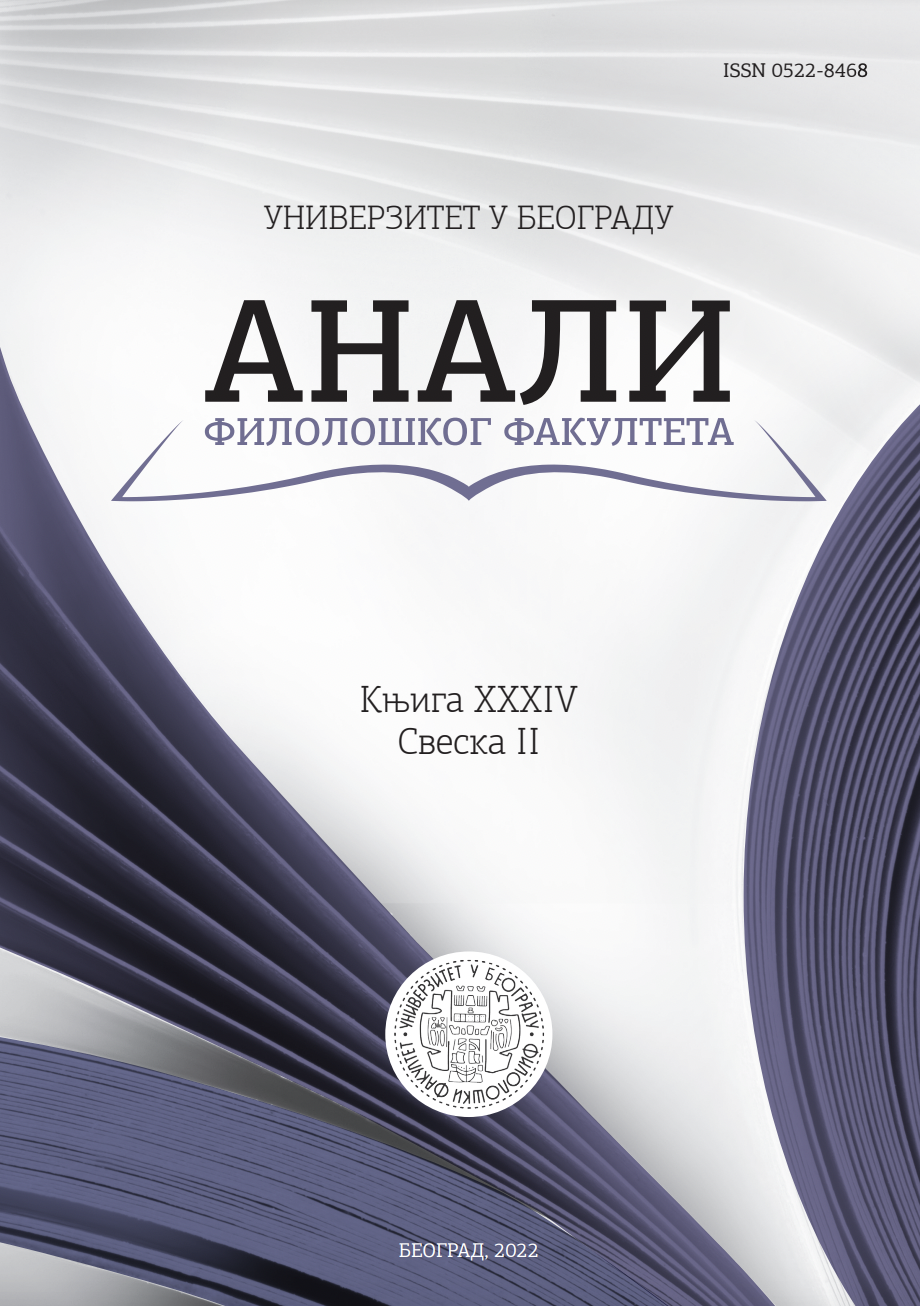The quest for reality through facing death in DeLillo’s White Noise
DOI:
https://doi.org/10.18485/analiff.2022.34.2.10Keywords:
death, Jack Gladney, real, identity, simulation, the postmodern condition, ModernismAbstract
The aim of this research is the analysis of the spiritual quest of Jack Gladney, the protagonist of White Noise (1985). This article adopts the position that Jack Gladney embodies a character whose motivation is modernist, whereas the condition of the world he inhabits is undeniably postmodern. The fictional world of White Noise is the world of signs and simulations. In such a world identity is decentred and the world is devoid of meaning. Jack, who is obsessed with the fear of death, gradually comes to the realization that it is actually death which may be the only remaining authentic experience in contemporary culture. He learns that the fear of death numbs and anesthetizes him. The novel implies that death is a mysterious phenomenon that cannot be reduced to its simulations. Jack eventually undergoes real, authentic experience at the moment where he is on the brink of death, on the fine border between life and death. This experience, which cannot be simulated, grants his life significance. He finally sees life in a different light and is determined to enjoy its small joys and explore its vast possibilities.
Downloads
Published
How to Cite
Issue
Section
License

This work is licensed under a Creative Commons Attribution-ShareAlike 4.0 International License.
Authors who publish with this journal agree to the following terms:
- Authors are confirming that they are the authors of the submitting article, which will be published (print and online) in the journal Anali filološkog fakulteta by the Faculty of Philology, University of Belgrade (Faculty of Philology, Studentski trg 3, 11000 Belgrade, Serbia). Author’s name will be evident in the printed article in the journal. All decisions regarding layout and distribution of the work are in hands of the publisher.
- Authors guarantee that the work is their own original creation and does not infringe any statutory or common-law copyright or any proprietary right of any third party. In case of claims by third parties, authors commit their self to defend the interests of the publisher, and shall cover any potential costs.
- Authors retain copyright and grant the journal right of first publication with the work simultaneously licensed under a Creative Commons Attribution-ShareAlike 4.0 International License that allows others to share the work with an acknowledgement of the work's authorship and initial publication in this journal.
- Authors are able to enter into separate, additional contractual arrangements for the non-exclusive distribution of the journal's published version of the work (e.g., post it to an institutional repository or publish it in a book), with an acknowledgement of its initial publication in this journal.
- Authors are permitted and encouraged to post their work online (e.g., in institutional repositories or on their website) prior to and during the submission process, as it can lead to productive exchanges, as well as earlier and greater citation of published work.





